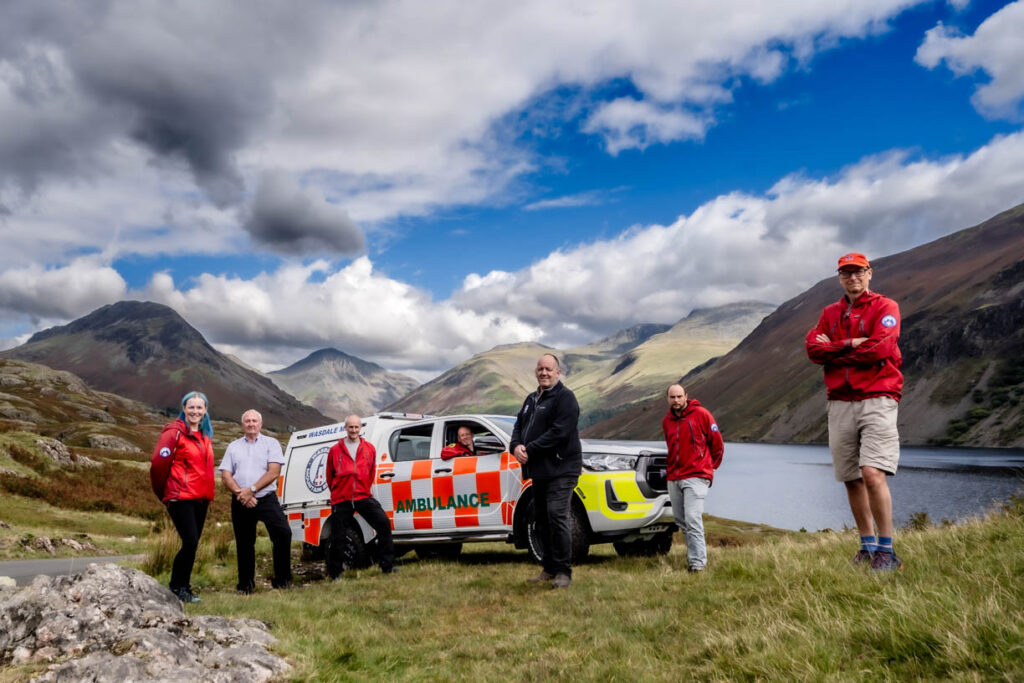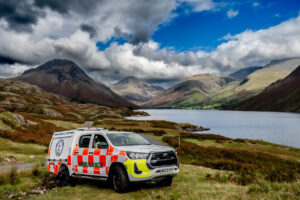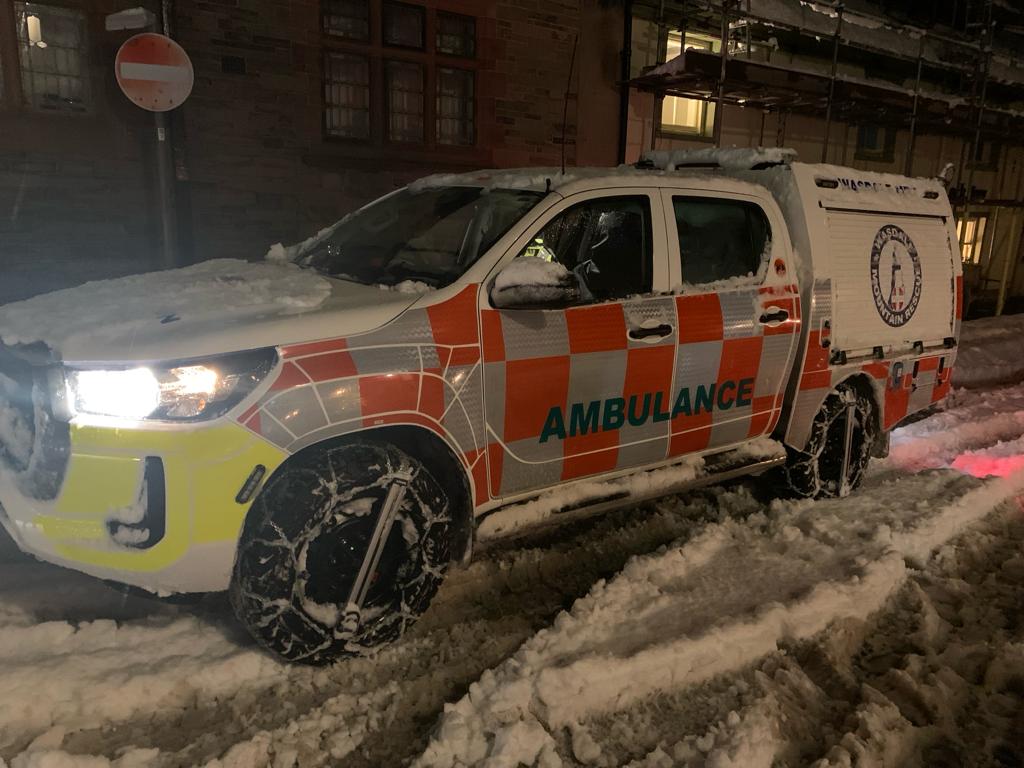A LIFE-SAVING team has been able to purchase a frontline emergency vehicle following funding from the Mid Copeland GDF Community Partnership.
Wasdale Mountain Rescue Team (WMRT) was awarded £75,497 in the first year of funding as part of the GDF programme and now the new rescue vehicle has been fully kitted out with blue lights, crag kit – including ropes and pulleys, casualty care equipment and radio communication.
The voluntary team of 50 people is one of 12 teams in the Lake District and helps to rescue and save the lives of those who get into difficulty, often in treacherous conditions. Historically, they deal with on average 100-120 emergency 999 call-outs a year, however this vital service has seen an increase in demand with 129 callouts before the end of August this year alone.

John Bamforth, Chair of WMRT, who has been a part of the team for about 27 years, said: “This funding from the GDF programme to provide the team with a fourth emergency vehicle is absolutely fabulous and will help us with this extra demand. Sometimes we can have two or even more call-outs in one day.
“It costs us £75,000 a year to run the team and we are totally reliant on donations and raising our own funds.”
John said the increase in call-outs appeared to be due to a number of reasons including the Covid pandemic, which had encouraged more people to take holidays in the UK, such as the Lakes, and also down to people using social media to share photos and experiences of mountain adventures without the context of difficult terrain and adverse weather conditions.
He said: “The Lake District Search and Mountain Rescue Association is sponsoring a campaign called AdventureSmart (www.adventuresmart.uk) which encourages people to ask themselves three questions before they set off on an adventure: Am I confident I have the knowledge and skills for the day? Do I know what the weather will be like? Do I have the right gear?”
John added: “Sometimes we must walk for over two hours to even reach a casualty. On a recent occasion a mother and son had got stuck in a 200-metre ravine with no mobile reception and they were suffering from hypothermia. It was so windy we couldn’t use a helicopter to help us initially. “We had to set up a rope system to haul the casualties out then fortunately the weather improved enough for a helicopter to evacuate them to hospital. We were out for over 10 hours on that call.”
The team – who all live locally within 20 minutes of base – includes engineers, builders, teachers and accountants. They have a range of skills and can train in Mountain First Aid and the next level Casualty Care – which provides similar training to a paramedic.

Andy Pratt, Chair of the Mid Copeland GDF Community Partnership, said: “Seeing this funding spent on something as important as a life-saving emergency vehicle really brings home how important this funding is and the diverse ways it can be used to benefit the community.
“While we’re part of this GDF process, our Community Partnership has £1million a year to award to local groups and organisations to help make a difference. Whether that’s a new play park, a community service, a new youth centre or helping to save lives – every project we’re able to fund is hugely important.”
A GDF is an underground facility designed to safely and securely dispose of higher activity radioactive waste.
Mid Copeland GDF Community Partnership provides access to £1million Community Investment Funding (CIF) per year from the GDF programme as discussions progress around what a facility could mean locally.

The Mid Copeland GDF Search Area covers the electoral ward of Gosforth which includes Seascale, Gosforth, Beckermet, Calderbridge, Haile, Thornhill, Nethertown and Braystones. The Lake District National Park is excluded from consideration – however CIF can be used for eligible community projects in this area.
Deep geology beyond the coast is being considered for siting the underground elements of a GDF in Mid Copeland. This means a surface facility on, or near, the coast would provide access to a disposal area deep in rock beyond the coast.
The GDF programme requires both a suitable site and a willing community and is still in the early stages. Construction will only start on a GDF when a suitable site is identified, a Potential Host Community has confirmed its willingness to host the facility through a Test of Public Support, and all the necessary consents and permits have been obtained.
These steps could take around 15 years.
For more information about Community Investment funding go to: www.midcopeland.workinginpartnership.org.uk
For more information about WMRT go to: www.wmrt.org.uk
